‘I thought your husband was a single father’: CEDA chief’s brutal reality check as a career woman
Melinda Cilento has blazed a trail in public policy at the BCA and CEDA plus the Woodside board by role reversing with her husband. But she hasn’t escaped the old stereotypes.
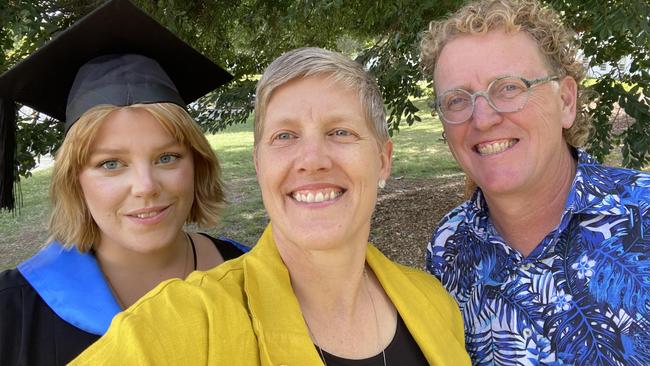
The Tickity Boo indoor play centre in Ascot Vale was a family institution in Melbourne’s northwestern suburbs for more than a decade.
One Saturday morning in 2011, Melinda Cilento made her first foray there with her then six-year-old daughter, Ellie, for a birthday party. What followed was one of the most confronting conversations of her life.
“I remember going up to say hello to the mother who was hosting, who asked me ‘Which child is yours? I pointed to Ellie and she sort of looked at me, paused and then said, ‘Oh, I didn’t know Bart had a wife. All along, I just thought he was this lovely, single father’.”
Cilento and husband Bart Sbeghen had then been married for 15 years, exchanging vows in 1996 in the Sculpture Garden of the National Gallery of Australia in Canberra. Ellie has two older sisters, Hannah and Jemma.
Yet, perhaps unusually for some, Cilento and Sbeghen deliberately reversed the traditional gender roles when the latter chose to be a stay-at-home dad. He supported his wife she pursued a stellar career, beginning with senior roles with the Federal Department of Treasury and the International Monetary Fund.
Cilento then became the chief economist and later deputy chief executive of the Business Council of Australia, as well as a non-executive director of what was then Woodside Petroleum and a commissioner with the Productivity Commission.
For more than six years she has been chief executive of the public policy think tank known as the Committee for Economic Development of Australia (CEDA) – stepping into the role in October 2017. She is also a director of Australian Unity and co-chair of Reconciliation Australia.
Yet the conversation in the Tickity Boo play centre in 2011 – the centre closed in 2020, one of many victims of the Covid-19 pandemic – highlighted for Cilento all the prejudices that still exist about male and female gender roles in business and in life.
“The one thing I did find hard to deal with, and resentment is probably the right word for it, was the judgments of some other women,” she recalls.
“I know it probably wasn’t intended. But if I came to school and dropped the kids off at school in a pinstripe suit, people would say to me, ‘Oh, are you staying for the book reading’?
“Then when the fathers in suits would drop their kids off, there would be this sort of reflective glory of ‘Oh, how nice he made the time to drop the kids off’.
“They weren’t being asked if they were staying for the book reading.”
But she stresses that as a working mother, you can’t judge yourself by what you think is going on for other people.
“There are always going to be moments of guilt. But you have just got to make the right decisions for you and your family,” Cilento says.
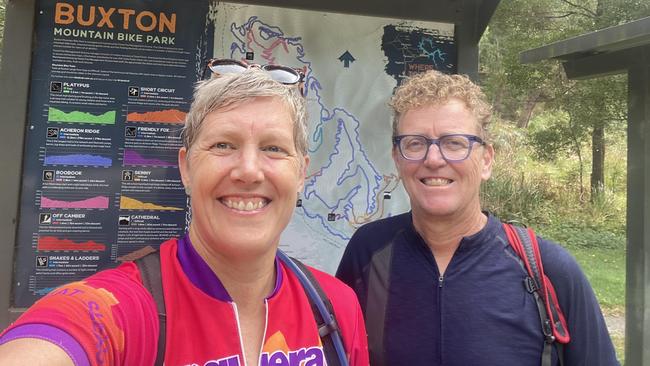
“Having money and having financial security is a really important part of that. When you are with your kids, you are focused and you are there. Then you just make the other choices. You do what you have to do.”
After two years of trying to fall pregnant, Cilento was 33 when Jemma was born in 2000.
Upon leaving the Federal Treasury in Canberra to move to Melbourne, Cilento applied for a new job as the head of economics at County Investment Management.
She didn’t tell them she was pregnant until the firm offered her the role. County had no issue with the news, but Jemma started attending childcare at just 10 weeks of age.
Cilento routinely expressed breastmilk each afternoon so Sbeghen could bottle feed their daughter in the early evening while she was still at work.
“I usually did it in a conference room. I know a couple of times, even when I was behind a locked door, people still managed to wangle their way in.
“They were horrified to see me doing this while reading The Economist. I don’t think the magazine got read again for a while after that,” she quips.
Cilento says she and Sbeghen started IVF in 2005 before the birth of their youngest daughters, all while she worked full time. Outside of her circle of family and close friends she never told anyone about going through the process.
Ellie was born that year and Hannah two years later.
“Once you make the decision to start trying to have kids, the importance of it becomes all too clear and the weight of not being able to weighs pretty heavily,” she says.
“The reflection for me is that if you know this is what you want, don’t wait for the perfect time. There isn’t one. Better to give yourself every chance.”
A new life down under
Cilento grew up on a farm in the US midwestern state of Wisconsin, just outside the city of Milwaukee.
Her parents divorced in the late 1970s when she was 11. Her mother, Chris, took her and her two-year-older brother across the world to Adelaide to start a new life.
Chris moved with her new partner, a Dutch-born Australian named John, who she had met in America. John had four children of his own.
“The divorce was very difficult. But if I’m honest, I feel pretty lucky. My parents didn’t have a great relationship. But my mum met someone who just really loved her and who treated me as a daughter,” Cilento says.
“So I was lucky to have a stepfather who for all counts was a real father, who was invested in me, who was just so loving and supportive.”
Cilento has always been very close to her mother who to this day is her hero.
After finishing her public schooling, Cilento embarked upon a psychology and economics double degree at Adelaide’s Flinders University.
One fact that is little known about her is that she was asked to leave the university after failing two years of her economics degree, because she was struggling to find her path.
So she took a year off to work and travel overseas, gaining a perspective and meeting people that gave her the motivation to return to university.
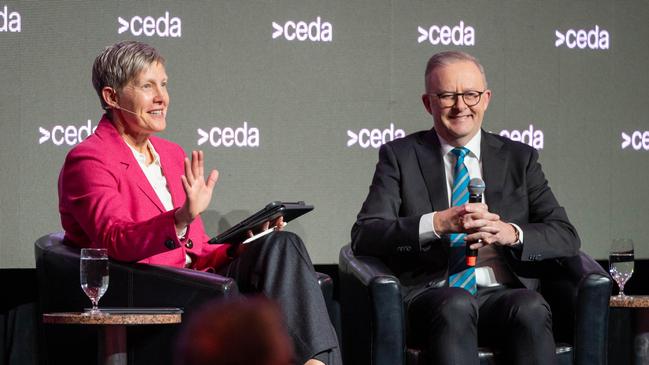
With a fresh sense of purpose and enjoyment, she completed her economic degree at Flinders, overcoming the early academic setbacks, and graduated with honours.
Then after starting work at the Federal Treasury, she says she suffered from “impostor syndrome”, where she often wondered if she were up to the job.
But one episode in Canberra at the end of 1991, when she was working on some weighty policy issues related to unemployment, riled her more than anything else.
“I was with one of the senior Treasury people and we walked into a meeting. He introduced himself and then he introduced me with the words “Oh and this is Mel’,” she recalls.
“It was offhand and dismissive, albeit not intentionally so. But it just came across that way. I thought to myself: ‘I can’t just be the throwaway’.”
From that moment on she insisted on being called Melinda.
After two years in Washington with the IMF, then three years as the head of economics at Invesco Australia and six years with the BCA, in 2008 Cilento contemplated studying for a MBA.
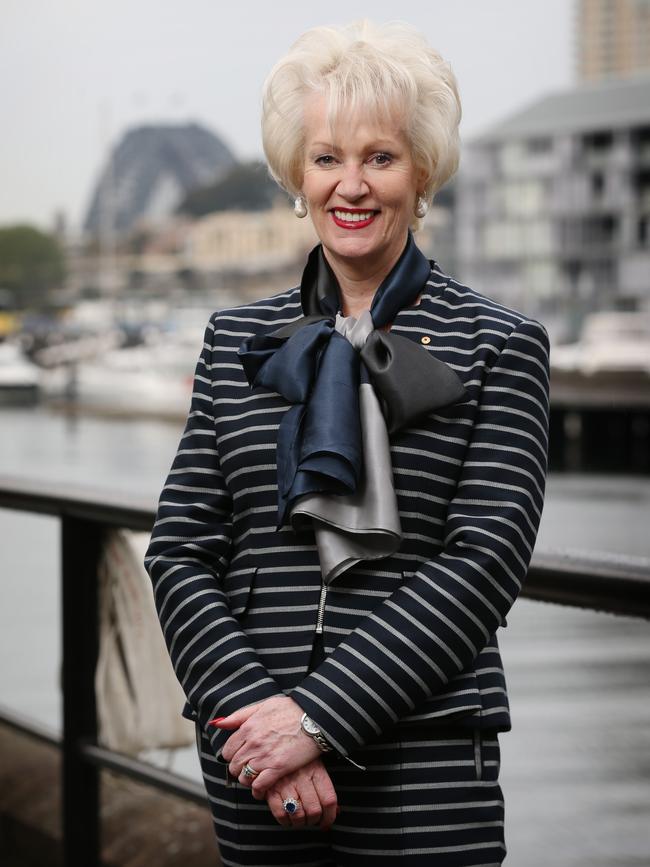
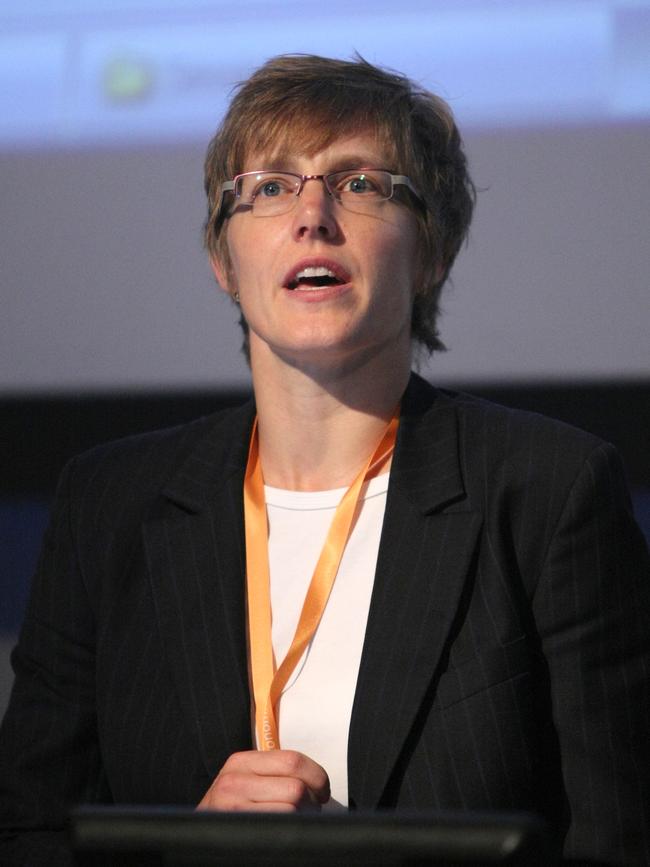
She sought the advice of then BCA chief executive Katie Lahey, followed by then Woodside chairman and former Wesfarmers CEO Michael Chaney, whom she knew through the BCA.
Chaney discouraged her from pursuing the MBA option and had other ideas for her next opportunity. Completely coincidentally, a female economist on the Woodside board was stepping down.
“I happened to be going to Perth for holidays and he said, ‘Come and see me to have a chat’. That turned into a full-on interview,” Cilento says.
While she had been advised to start her non-executive director (NED) career on a smaller board, Woodside was an appealing option.
“A lot of people were surprised and interested in how I got that opportunity as my first NED role,” she says.
“I guess my learning through that was that it was great to step on to a board where people were experienced, where they could share their knowledge with me and where I didn’t feel like I needed to cover everything all at once.
“We had a great management team and a great company secretary. So I knew I was in good hands.”
For more than three years Cilento was the only woman on the nine-person board. It took until 2012 for her to be joined by geologist Sarah Ryan.
“My lesson on gender as the only female was that you have to get allies. You have to find others who are going to make your points for you,” she says.
“The other interesting point is that once we had another female director join, without talking to each other, we never sat next to each other in meetings. Then when the third female came, we didn’t care where we sat.”
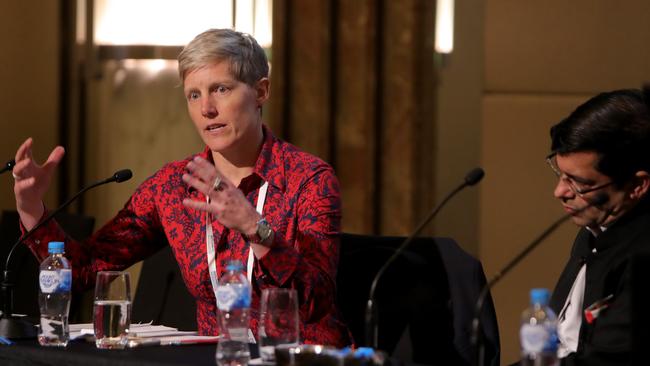
Cilento’s next challenge came at the end of 2010 when she quit her role at the BCA and gave up full time work for the first time in her life, allowing her husband to start full time employment in the charity sector.
But she retained her position on the Woodside board.
With two daughters in primary school, she says her biggest challenge – which today is shared by many listed company directors who care for young children – was to keep herself relevant.
“If people are looking for diversity and a younger perspective, I kept asking myself ‘What am I doing – whether it was seminars or other things – to keep me fresh, interesting and relevant to the board? How do you keep yourself at the top of your game? It is fundamentally important,” she says.
Strengthened by family support
Cilento was a commissioner with the Productivity Commission in 2017 when she was approached to take the first chief executive role of her career at CEDA.
The CEDA board was looking for someone to lift the voice and influence of the group in the national economic debate.
Her initial focus was to rebuild CEDA’s research capacity and, more importantly, put purpose back at the core of the organisation.
“That purpose of being an influential organisation that’s trying to shape national prosperity, reflecting a broad membership base,” she says.
“If you look through my career, one of the interesting threads has been working across sectors. That’s the thing that excites me about this role. You can have success with insight in the silos of business, or the public sector or whatever.
“But the thing that I’ve really come to appreciate is when you bring those ideas together and you really look for solutions that sit across those groups; that’s when you have impact.”
She is thankful to her bicycle-loving husband for his support throughout her public policy and business career. Their eldest, Jemma, now conducts her own podcast.
“I feel really blessed. I feel very lucky to have had the support that’s enabled me to do this in a way that’s enabled us to have a thriving family, and for me to get the benefits of work and family. I hope Bart feels the same,” she says.
But it hasn’t been easy.
She recalls occasionally returning home to Melbourne from Canberra and listening to Bart politely vent.
“Bart would quip: ‘Our friends come over and you’ve just been in Canberra having dinner with the PM. And I’ve just dealt with the flu’. So I think it’s genuinely been harder for him and I think it’s because society still has this view about us that defines you according to what you do,” she says.
Sbeghen now runs a not-for-profit called Dr Cranky’s that recycles bikes at primary schools.
“In many respects, his contribution is as significant as mine given the impact he is having in people’s lives. He has managed to stake out his own kind of impact and influence and hats off to him for that,” Cilento says.
But perhaps the most important reinforcement of her life choices has come from her daughters.
“I certainly feel that they have reflected back to me, from time to time, the value they have derived from seeing and having a mother who has had the roles and responsibilities I have had,” she says proudly.
“Even my youngest daughter, she’s just about to turn 17. She tells me that when her teachers at school ask her what I do, she replies: ‘I can’t really describe it, but I just say you’re a CEO’. She gets a kick out of that.”




To join the conversation, please log in. Don't have an account? Register
Join the conversation, you are commenting as Logout